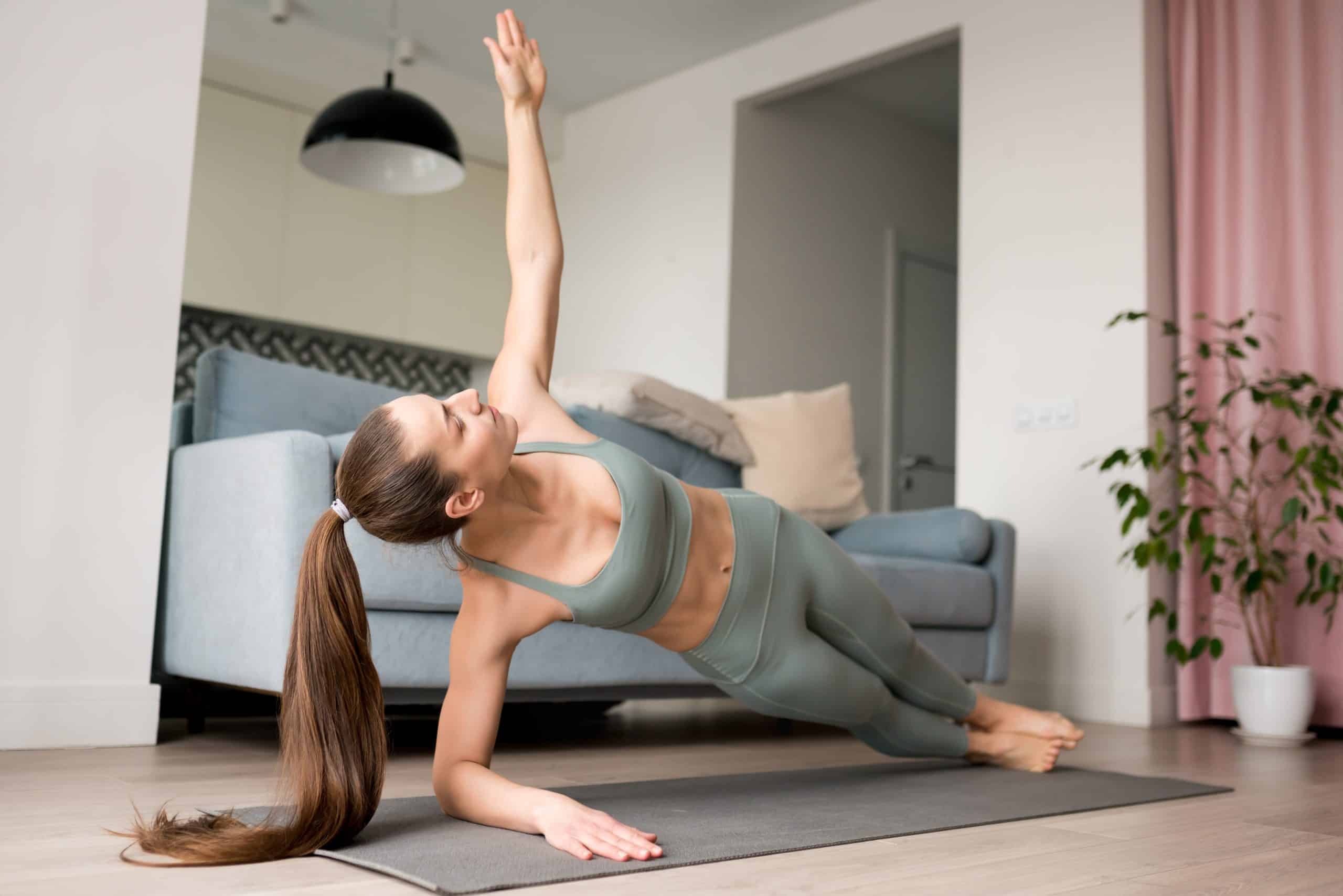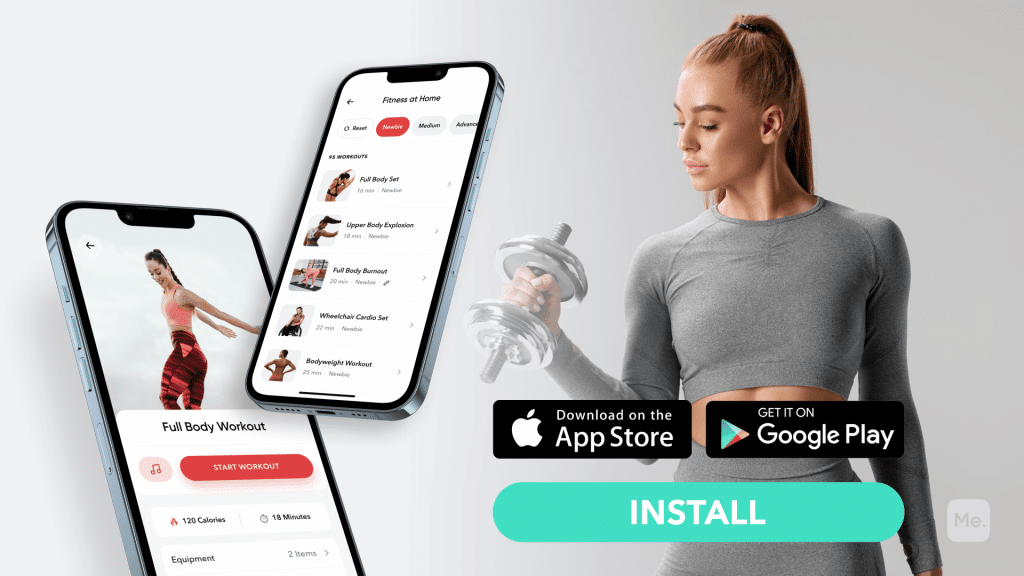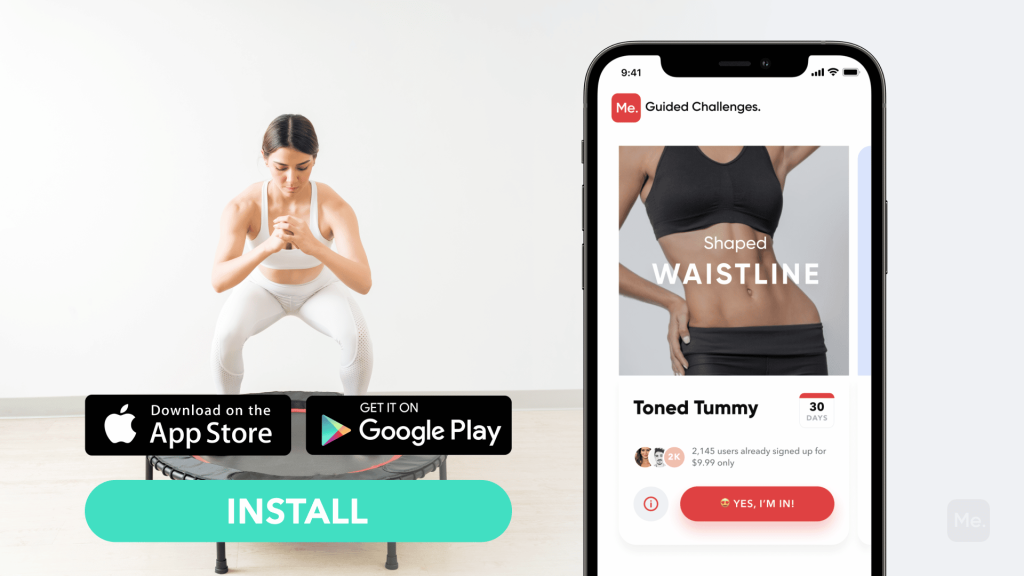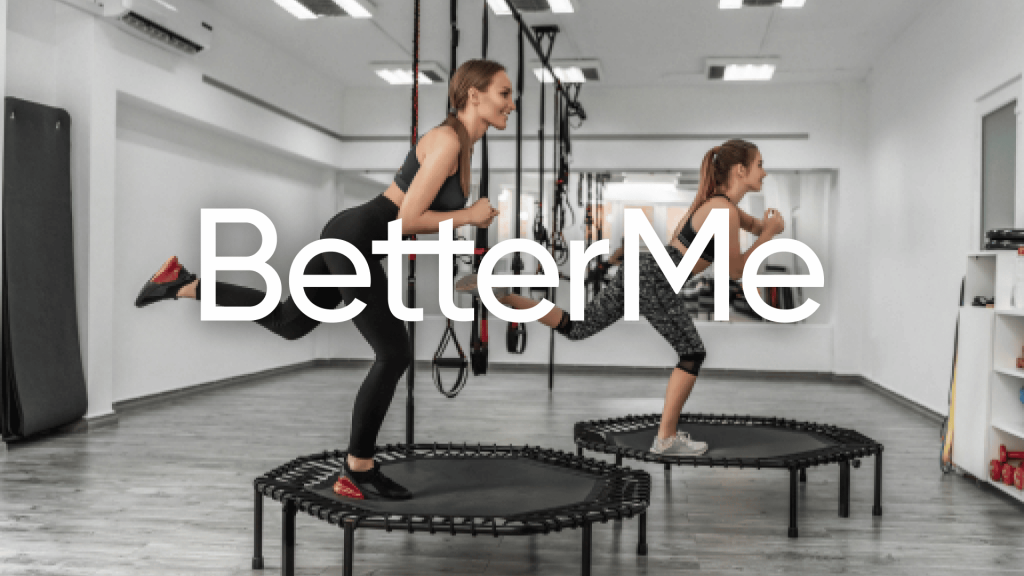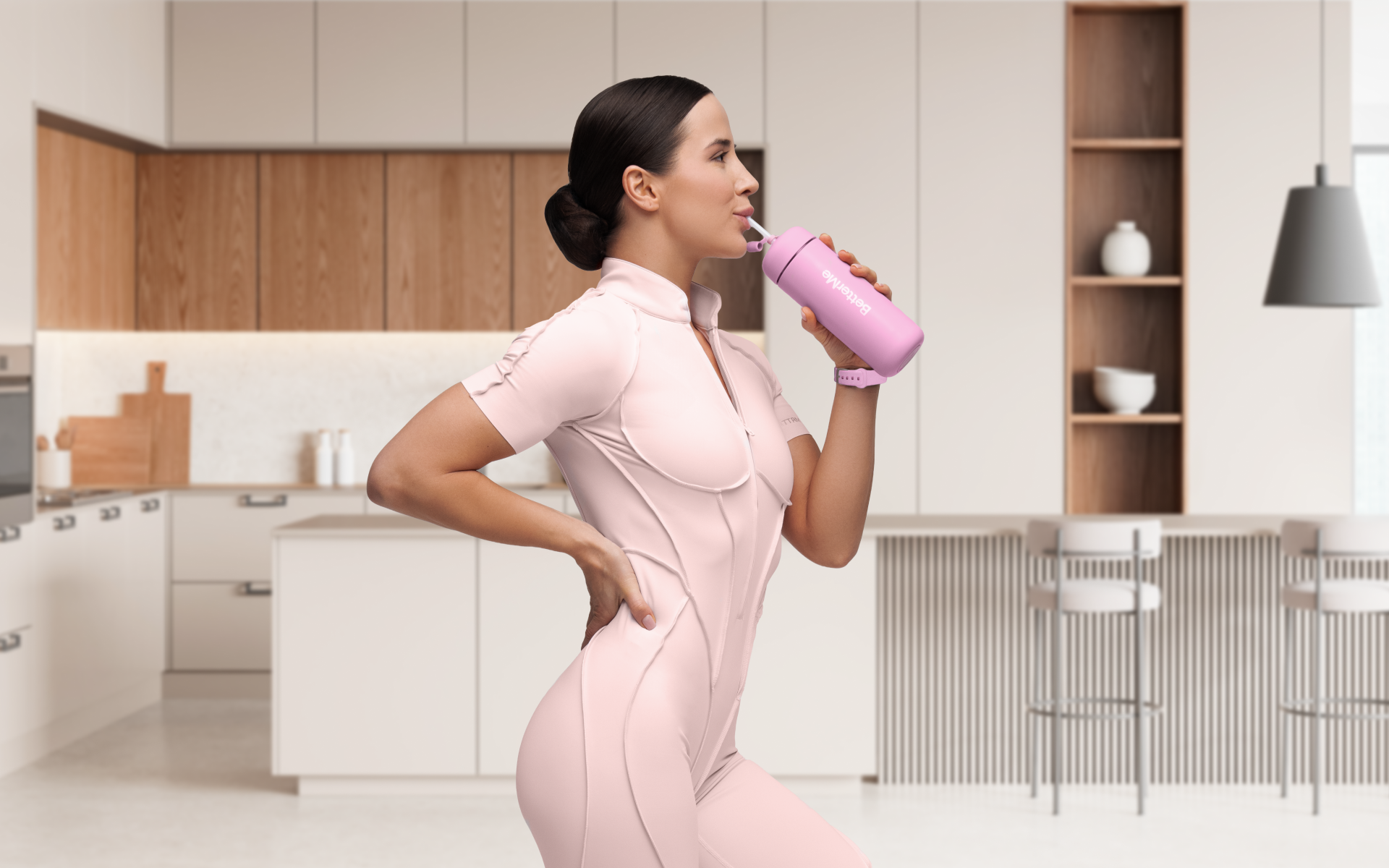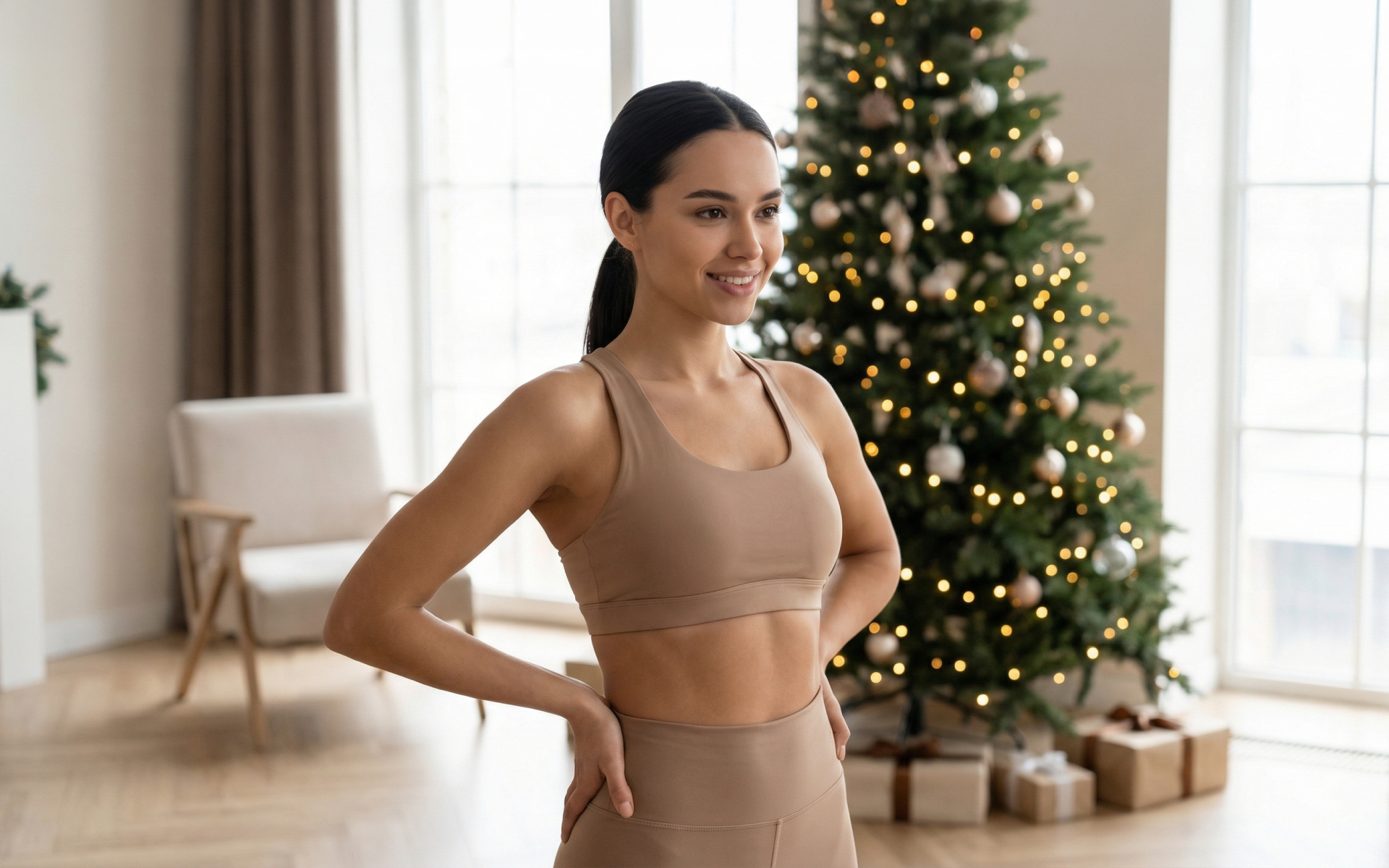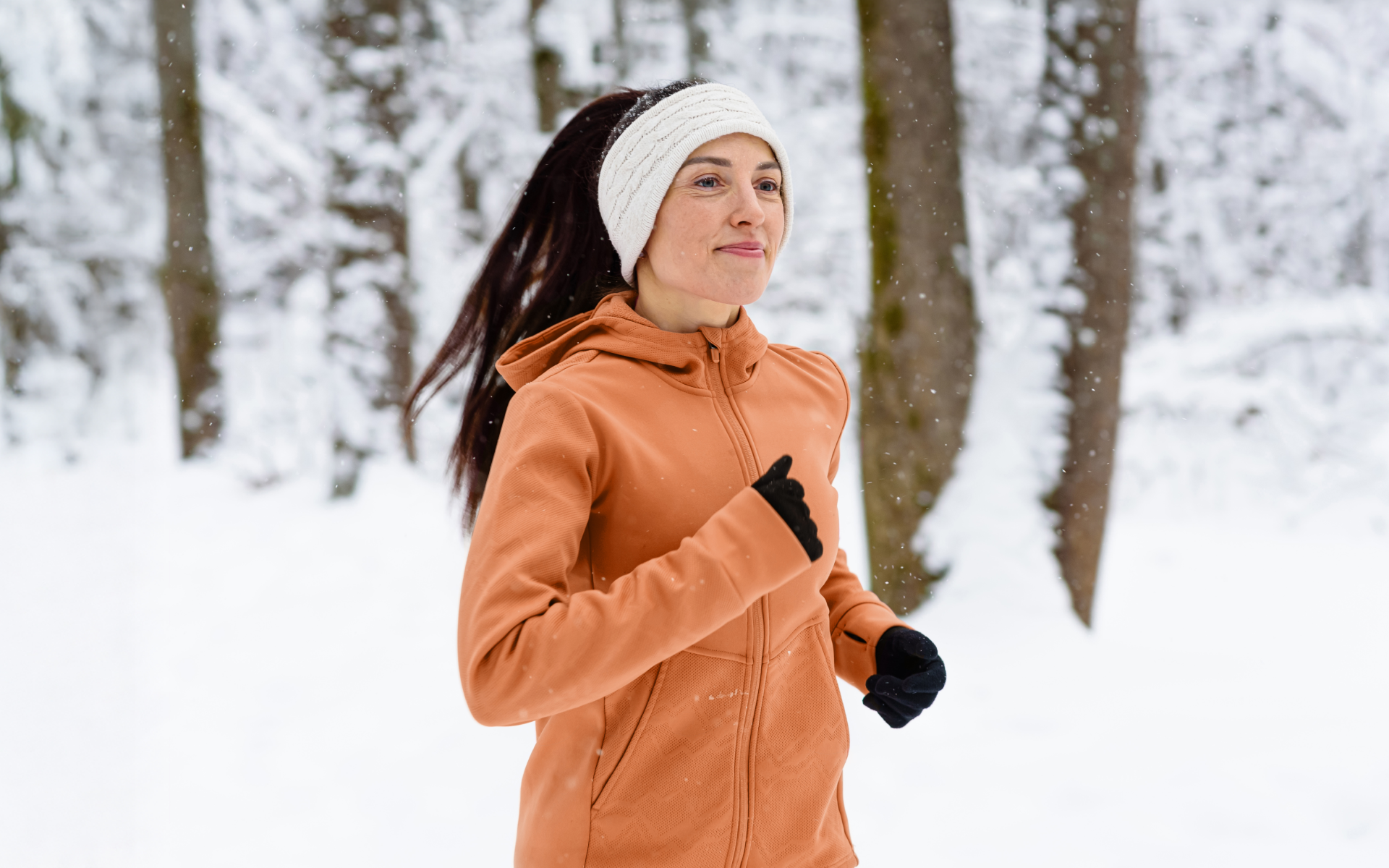We don’t usually think of balance as something crucial for our well-being until we fall on a slippery surface. Competing with friends to see who can stand on one leg for the longest time is fun, but this is all about the static balance.
Get your personalized
meal plan!
There’s another, more complicated kind – dynamic balance.
We’ve all experienced dynamic balance examples since our childhood (as well as the examples of the lack of that balance, of course).
What are examples of dynamic balance? Any of your daily tasks that involve moving: walking, running, turning, reaching, etc.
Training it is more important than you may think. It may not only improve your sports performance and daily-life mobility but also help you achieve your fitness goals. Good balance involves several systems – the visual, vestibular, proprioceptive (skin, muscles, joints; responsible for the sense of body awareness), and the CNS (central nervous system).
And while standing on one leg is relatively easy for healthy individuals since they have control over muscle contractions, when it comes to dynamic movements, this process needs to be automatic.
In this article, I overview:
- The terminology and definitions
- The difference between static and dynamic balance
- The importance of training your dynamic balance
- How to test and improve it
The Balance System: How It Works
The systems contributing to balance maintenance are:
- Proprioceptive or somatosensory system.
The proprioceptive or somatosensory system is responsible for giving you the sense of body awareness. It provides postural balance and helps you navigate space through muscles and joints.
This system has the shortest time delays — only 40-50 ms. In normal conditions, healthy people rely 70% and 10% on the proprioceptive system, on even and uneven surfaces respectively (1).
- Vestibular system.
The vestibular system helps you coordinate your body, keep your head upright, keep your eyes focused when you move your head, and keep your whole body upright, so it doesn’t fall suddenly.
In normal conditions, healthy people rely 20% and 60% on the vestibular system, on even and uneven surfaces respectively (1).
- Visual system.
Your eyes and their connection to the brain contribute to balance by providing visual aids.
Individuals with visual impairments are able to boost the other systems’ response to compensate. Individuals with vestibular deficits are able to boost the visual and somatosensory systems to compensate.
In normal conditions, healthy people rely 10% and 30% on the visual system, on even and uneven surfaces respectively (1).
- Central nervous system.
The CNS receives feedback from the aforementioned systems, using them to stabilize your body by activating necessary muscles (1).
Read More: Muscle Imbalances: Causes, Symptoms, And Solutions
Static Vs. Dynamic Balance
What are dynamic balance and static balance?
- Static balance – the ability to keep your body in a stable position. In static balance, the center of mass is over the supportive base. This is the basis of your balance system, without which adequate dynamic balance cannot be achieved.
- Dynamic balance – the ability to maintain stability during movement. In dynamic standing and moving balance, the center of mass is moving around the base of support, which is a challenge at times.
If you have good dynamic balance, your body reacts adequately to sudden changes in surface and conditions.
When talking about fitness and wellness, beginners usually start with static balance exercises, moving forward to the more complex dynamic workouts.
Both static and dynamic training are recommended for rehabilitation after those injuries that led to reconstruction (such as ACL (knee ligament) reconstruction) (8).
The Importance Of Training Dynamic Balance
Dynamic balance is crucial for avoiding falls and injuries that may limit your mobility in the future (5). Both static and dynamic training have proven effective for improved postural control as well (3).
For athletes and people with fitness goals, dynamic balance training can provide the following benefits:
- Better running quality due to the adequate movement of the center of mass according to the base of support.
- Better quality and appearance of your body due to the muscles involved in such training, including the obliques, thighs, glutes, lower back, and hips.
- Lower risk of injury due to a healthy reaction to external condition change.
- Better warm-up before your regular workouts, especially if they involve rapid movement in different directions.
- Better quality of recovery exercises to cool down between reps or after the workout.
- Greater energy expenditure due to physical activity increase (6).
It’s recommended to incorporate balance training into your workout routine. It will not only help you move and train more efficiently but improve your looks by getting you closer to your comfortable weight.
Diagnosis And Improvement Of Dynamic Balance
If you train dynamic balance professionally or plan on doing so, you will need to get tested regularly to see the progress. This is needed if you’re rehabilitating from an injury or surgery. Many specialists use special functional scales to get an objective opinion on the condition of your balance systems.
Here are some of the scales and/or tests you may have to go through:
- Berg Balance Scale – involves various functional tasks to assess your static and dynamic balance. It’s most often used for people recovering after a stroke.
- Romberg Test – involves standing upright for a minute with eyes closed. Assesses your static balance (may be done in a complex with other approaches while testing static and dynamic balance).
- Timed Up And Go Test – evaluation of your ability to maintain mobility and dynamic balance.
If you’ve mustered up the courage to crush your weight loss goal, let Betterme take the sting out of this demanding process. Our app will help you restructure your habits, remold your life and crank up your fitness results!
Dynamic Balance Exercises: What You Have To Know And Examples
A complex of dynamic balance training can contain various exercising stages. All of them are aimed at improving coordination between performed movements and strengthening the muscles responsible for weight shift resistance.
Logically, such a workout can contain several levels of difficulty, including:
- Static balance improvement
- Slight displacement performance to improve coordination
- Greater and faster displacement performance to achieve progress
Here are some examples of such exercises, going one by one, incorporating all three stages:
- Simple coordinated hand and feet movements
- Unipedal exercises – standing on one foot at a time
- Reaching exercises – stepping onto objects from a starting position using only one foot
Also, a bit about the type of such training (2):
- It’s NOT flexibility training
- It MAY BE aerobic, but not often
- It IS aimed at strengthening your muscles
- It’s NOT a sport, just a series of exercises
- It IS low-impact training
To give you something to work with, here are 10 great dynamic balance exercises to try:
- Single-leg arm reaches – standing on one leg with your knee slightly bent, reach forward with your arm as far as you can. Then lift the arm up and bring it to the back as far as you can without discomfort. Do several reps and alternate legs.
- Single-leg leg reaches – the same starting position, but now you have to move one of the legs forward and backward, moving it under your body. Do several reps and alternate legs.
- Lateral bounds – classic lateral bounds but with 3-5-second stops on each side. First, balance on one foot, sinking into the hip a bit. Then, push into the ground and leap to the other side, taking a 3-5-second pause there too. Then repeat.
- Forward bounds or slow running – start on one foot, sinking a bit into the hip. Wait for 3-5 seconds and leap forward on another foot, taking a stop there as well. Continue moving forward like this.
- Step-ups – regular step-ups with a pause. Take a jump-box or any safe alternative at the height of your knee. Step onto it with one leg and maintain balance for 3-5 seconds before stepping down. Repeat with the other leg.
- Front-back weight shifting – feet hip-width apart, shift your weight forward and backward slowly, moving the weight to the toes and heels respectively. Move your hips back a little when shifting back for more stability.
- Hip abduction – stand upright and start shifting your weight to one leg, abducting the other hip (taking the leg off the ground). As you reach your limit, slowly put the leg back on the ground and do the same on the other side. Think about extending your leg farther rather than lifting it as high as you can.
- Hip extension – the same starting position but you have to move your leg behind you. You’ll feel the tension in your hip and glute. Hold for a couple of seconds and repeat on the other leg.
- Leg curls – the same starting position but you curl one leg after another. Keep the knees as close together as you can. You should feel some tension in the hamstrings.
- Calf raise – stand upright, feet close together. Shift the weight to the balls of your feet and take the heels off the ground. Try to maintain balance as you rise up. Then, gently come back to the starting position.
Read More: Balance Board Benefits, Drawbacks, And Exercises
Also, try tai chi, yoga, and pilates as additions to the training (10).
You can start with a chair or a wall to support yourself when needed. Over time, you’ll train enough to perform all of these exercises with no additional support but that of your balance.
Also, engage your core muscles when performing any of the exercises.
Summary
Both static and dynamic balance are essential for a healthy lifestyle. An adequate balance allows you to work out better and achieve your fitness goals. And training a certain way can improve both types of balance.
It’s a very healthy cycle of working out for a higher quality of life that leads to more effective workouts and then again to a higher quality of life. I mean the condition of your body, its appearance, and all the sweet bonuses that come along.
If you’re a complete beginner, it’s recommended to start with static balance exercises. They will improve your body awareness, posture, and tone of muscles. Such training will then improve the quality of your squats and other exercises you do without rapid movement.
Reasons why BetterMe is a safe bet: a wide range of calorie-blasting workouts, finger-licking recipes, 24/7 support, challenges that’ll keep you on your best game, and that just scratches the surface! Start using our app and watch the magic happen.
Then, you can move on to more complex dynamic balance exercises, starting with the ones you can find in this article. They will improve your body composition, energy expenditure, and looks, as well as joint health and physical performance.
Make sure to incorporate dynamic balance training into your routines. It can be a stand-alone workout, a part of your warm-up or cool-down routines, or a quick morning ritual.
If you feel discomfort or pain in your joints when doing any of the exercises, contact a physiotherapist for a consultation. A trained professional will create a program tailored exclusively for your needs and desired results.
DISCLAIMER:
This article is intended for general informational purposes only and does not serve to address individual circumstances. It is not a substitute for professional advice or help and should not be relied on for making any kind of decision-making. Any action taken as a direct or indirect result of the information in this article is entirely at your own risk and is your sole responsibility.
BetterMe, its content staff, and its medical advisors accept no responsibility for inaccuracies, errors, misstatements, inconsistencies, or omissions and specifically disclaim any liability, loss or risk, personal, professional or otherwise, which may be incurred as a consequence, directly or indirectly, of the use and/or application of any content.
You should always seek the advice of your physician or other qualified health provider with any questions you may have regarding a medical condition or your specific situation. Never disregard professional medical advice or delay seeking it because of BetterMe content. If you suspect or think you may have a medical emergency, call your doctor.
SOURCES:
- Balance (n.d., physio-pedia.com)
- Balance Training (2020, webmd.com)
- Balance Training Programs in Athletes – a Systematic Review (2017, ncbi.nlm.nih.gov)
- Berg Balance Scale (n.d., physio-pedia.com)
- Dynamic Balance During Human Movement: Measurement and Control Mechanisms (2019, ncbi.nlm.nih.gov)
- Energy Expenditure (2020, sciencedirect.com)
- Romberg Test (2021, ncbi.nlm.nih.gov)
- The Effects of Balance Training on Static and Dynamic Postural Stability Indices After Acute ACL Reconstruction (2016, ncbi.nlm.nih.gov)
- Timed Up & Go (TUG) (n.d., cdc.gov)
- Way to Improve Your Balance (2021, webmd.com)
